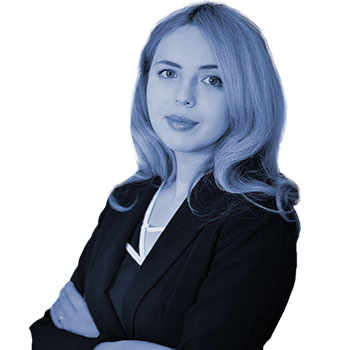
Maria Lukatskaya, 31
PhD materials science and engineering ’15
Assistant professor, ETH Zürich (Switzerland)
My Greatest Accomplishment: I really enjoy the creative and collaborative aspects of doing science; this was a driving force for me to move my career toward a faculty position and establishing my own research group. In December 2019, I became assistant professor in the Department of Mechanical and Process Engineering at ETH Zürich, a highly recognized research institution in Switzerland. I work in the field of electrochemical energy storage and conversion. My group targets challenges related to the development of the new solutions to satisfy the growing demand for energy. We study complex phenomena in solids and liquids and at their electrified interfaces that are associated with storing energy reversibly and efficiently converting electrical energy into fuels. Next, we apply the fundamental knowledge that we gained to develop new materials for batteries and electro-catalysis that can deliver improved performance, cost, efficiency and safety. We are also focused on the design of eco-friendly energy systems that have minimal environmental impact.
How Drexel Helped: My first interaction with electrochemistry started during my undergrad years at Moscow State University but I was mostly focused on the fundamental science. It was during my PhD at Drexel under the mentorship of Distinguished University and Bach Professor Yury Gogotsi that I began to connect fundamentals with an applied research by focusing on electrochemical energy storage in 2D carbides called MXenes. I found that these materials could charge extremely fast and endure tens of thousands of charge-discharge cycles. My Drexel experience profoundly shaped me as a scientist and helped to formulate my vision. As a PhD student, I attended numerous scientific conferences and had a unique opportunity to learn from the best researchers in the field.
Where I’ll Be in Five Years: I love to explore new fields and fuse my studies with new research disciplines. I hope that in five to 10 years my group will be able to provide answers to many complex questions pertaining to energy sciences. And of course, I hope that the doctoral students and postdocs graduating from my lab will be extremely successful at starting their own independent research adventures.


